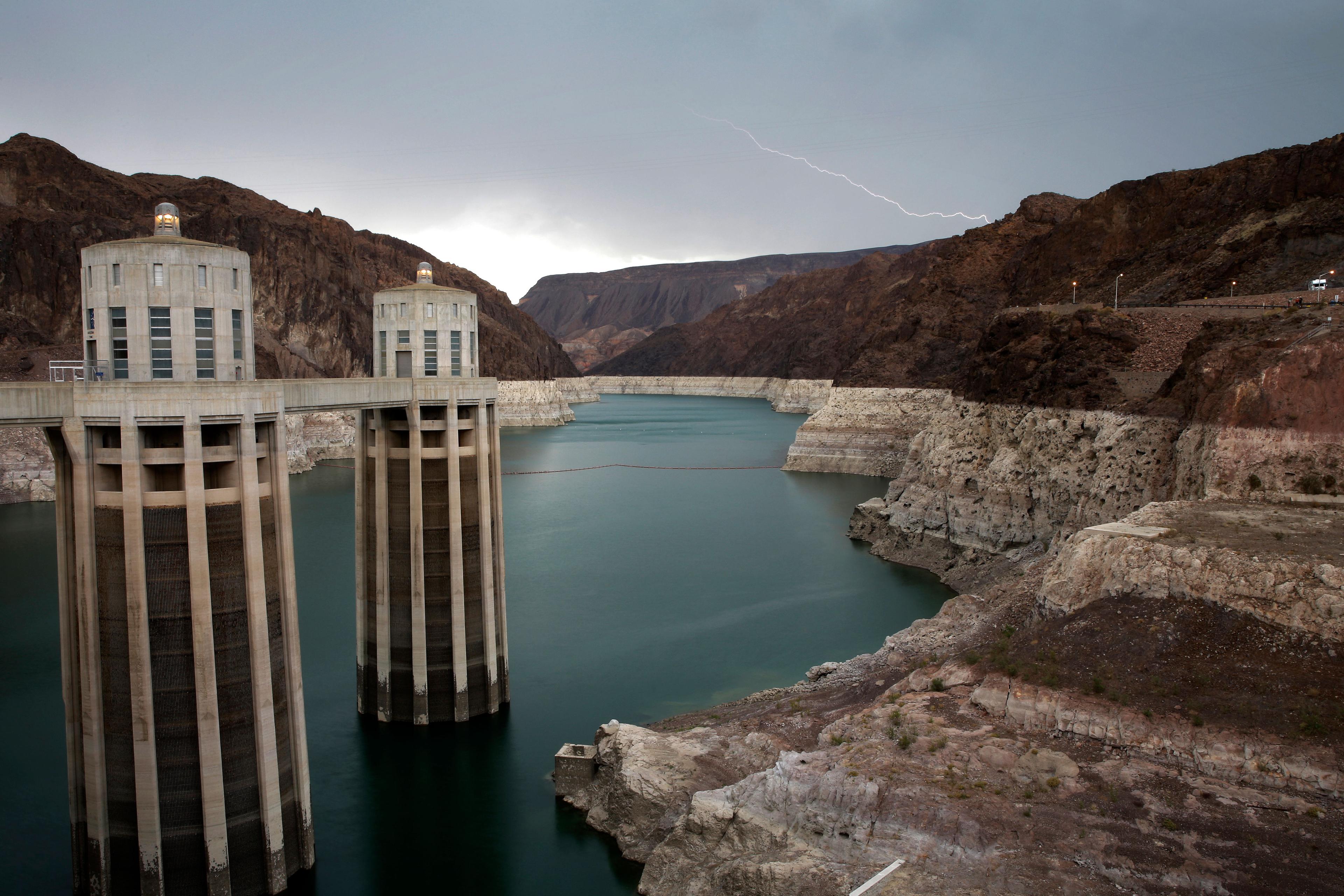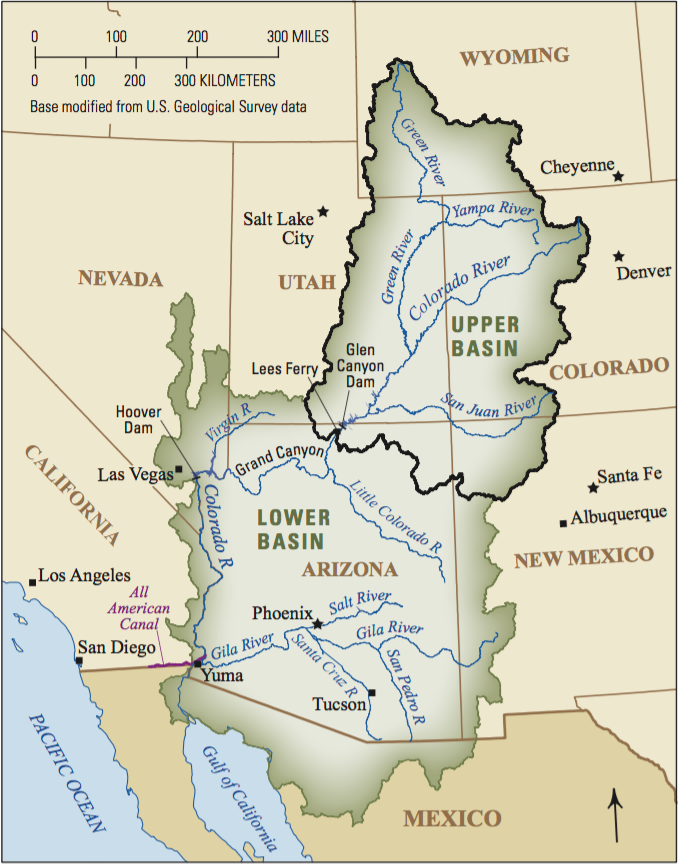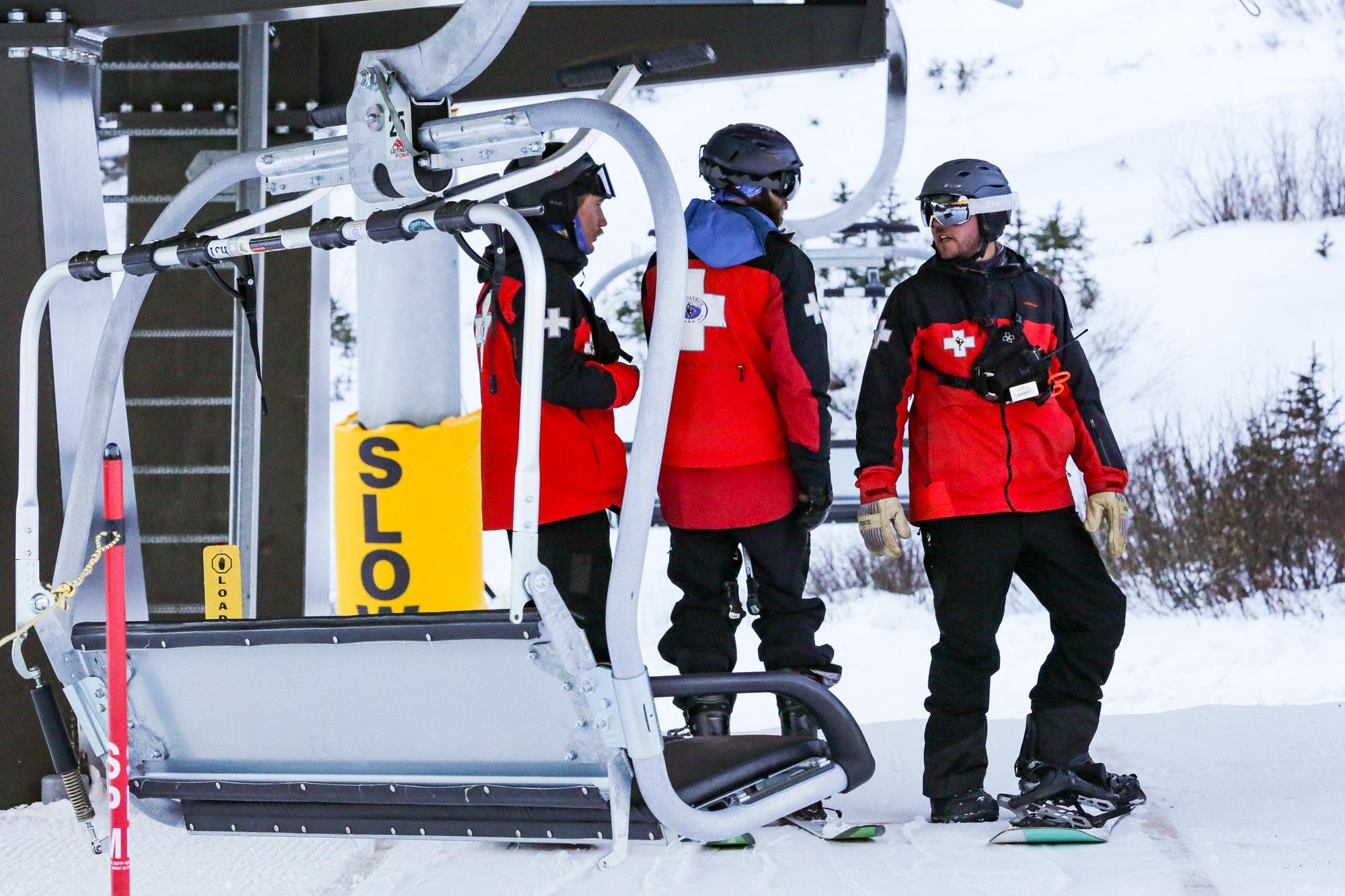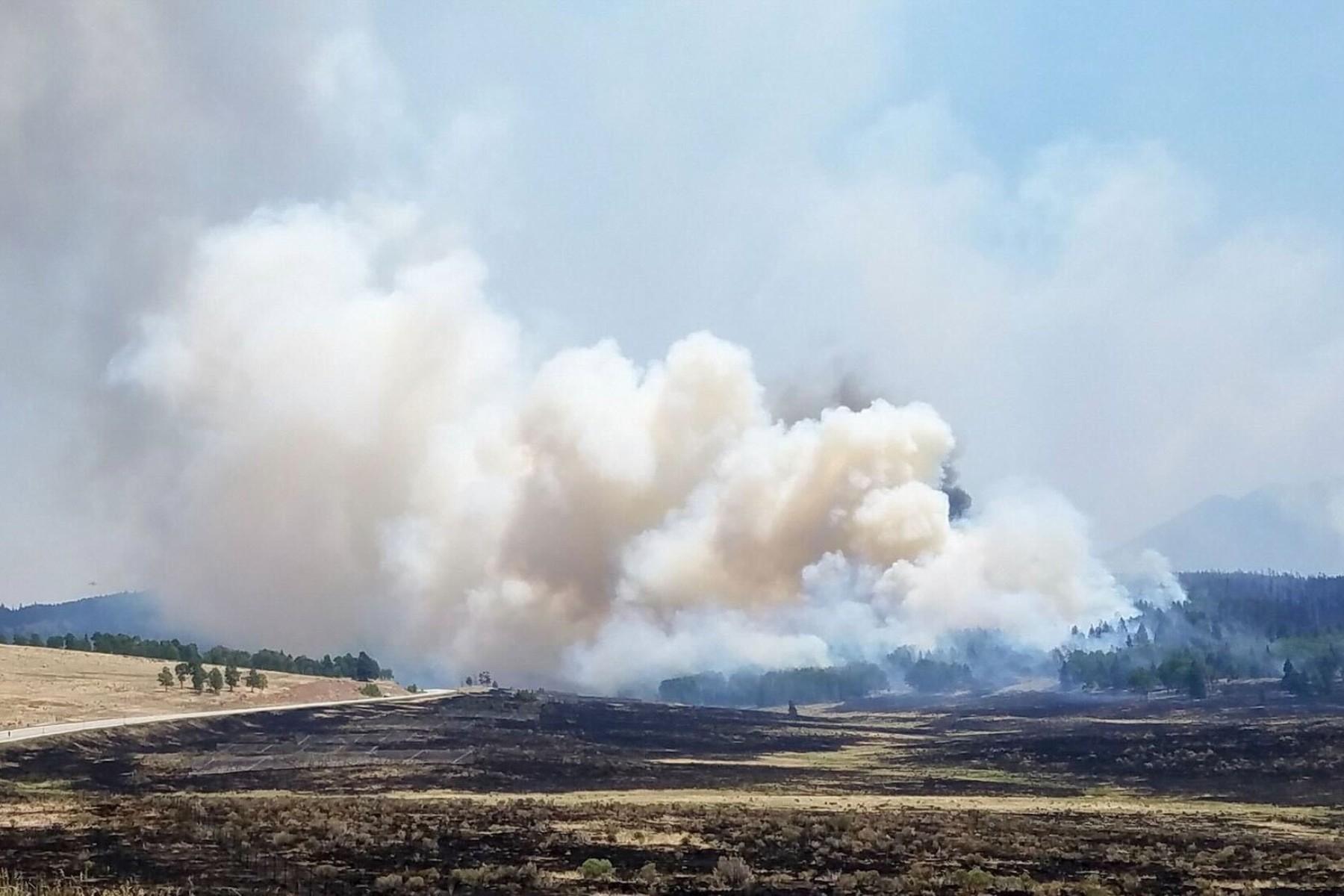

Civil discourse and collaboration among Colorado River water managers has been a hallmark for years. But there was a break in the normally staid diplomacy this April when Denver Water issued a stern warning to the Central Arizona Project.
Denver Water raised concerns in an April 16 letter over perceived “manipulation of water demands” by the Central Arizona Water Conservancy District, which manages the Central Arizona Project. CAP’s system of canals feeds Colorado River Water to Arizona farms and the cities of Phoenix and Tucson.
In the letter, Denver Water CEO/manager Jim Lochhead called into question recent CAP statements about a so-called “sweet spot” in Lake Mead. CAP water managers are publicly discussing keeping measurement levels within a specific range in the lower Colorado River Basin reservoir so more water will come from Lake Powell upstream.
Lochhead said those actions jeopardize millions spent by his agency to conserve Colorado River water upstream. Denver Water gets about half of what it needs from the river, and has invested in recent years in the Colorado River Conservation Program, which pays state farmers and ranchers to conserve Colorado River water as the entire basin struggles to manage the effects of an 18-year drought.
“Denver Water is prepared to terminate our funding of the program after we meet our obligations in 2018...unless the [Central Arizona Water Conservancy District] is able to verifiably establish it has ceased all actions to manipulate demands and is fully participating in aggressive conservation measures along with other entities in Arizona,” the letter said.
In an interview, Lochhead said actions by Arizona water managers “undermines both the investment that Denver Water has made in this program and it undermines the conservation efforts that are being made by water users in the upper basin including in Western Colorado.”
For its part, the Arizona district said it will contact Denver Water officials and can’t comment now.
More Unusual Steps
Denver Water’s missive isn’t the first warning received by the Central Arizona Water Conservancy District. Just three days before Denver’s communique, the Upper Colorado River Commission sent its own strongly worded dispatch to Arizona Department of Water Resources chief Tom Buschatzke.
“[The Central Arizona Water Conservation District’s] goal appears to be to delay agreement on drought plans in order to take advantage of what it terms the ‘sweet spot’ by drawing ‘bonus water’ from Lake Powell… characterizations indicate that CAWCD intends to disregard the basin’s dire situation at the expense of Lake Powell and all other basin states,” the commission wrote.

Upper Colorado River Commissioner James Eklund signed the letter along with representatives from New Mexico, Wyoming and Utah. He said it was “an unusual step to see language like this in a letter from one state to another. That said, we feel like it was timely and the situation warranted the letter.”
For Eklund, the crux of the issue is one water district in Arizona “maximizing one interest over the interest of the entire basin.”
“We assumed good faith dealing and when we saw something that suggested a contrary message or policy being adopted by the district in Arizona,” Eklund continued. “That’s when we decided we have to bring them back into the fold, into the herd, and get them back at the negotiating table.”
At a deeper level, there’s an internal dispute between Arizona water leaders. The Arizona Department of Water Resources has criticized these management practices by the Central Arizona Project.
“It raises important questions about actions taken by Central Arizona Water Conservation District that threaten to blow up the collaborative effort that we have been enjoying on the Colorado River for the last 20 years,” Arizona Department of Water Resources Director Tom Buschatzke told KJZZ in Phoenix.
In response to the Upper Colorado River Commission letter, the Central Arizona Project said it’s “hoping to clarify apparent misunderstandings,” and will facilitate in-person discussions on the topic.
Future Water Wars?
For Andy Mueller, general manager of the Grand Junction-based Colorado River District, it’s time to pull in the U.S. Department of Interior as a referee.
“It’s unfortunate that what we view as their internal dysfunction within Arizona has caused frankly damage within the water community on the Colorado River,” he said.
Mueller wants to see Interior review whether the CAP’s water diversions are in compliance with Colorado River water law.
“It deserves looking at and will require some federal action probably,” he said, adding that the Arizona water district’s actions go beyond a “friendly water dispute.”
Ultimately, Mueller’s prime concern is that he doesn’t want to the Denver Water-funded Conservation Pilot to shrink. He thinks that paying farmers and ranchers to conserve water could be a long-term solution to keeping Western Slope producers viable. But any potential interruptions could jeopardize that.
“What happens to the seed sellers, the tractor dealers, the auto mechanics, and everyone in the community who depends on agricultural production that circulates throughout the community? We need to be able to study that,” Mueller said. “If these projects aren’t continuing because someone’s using [saved water] to their own advantage, we’ve lost important information.”









